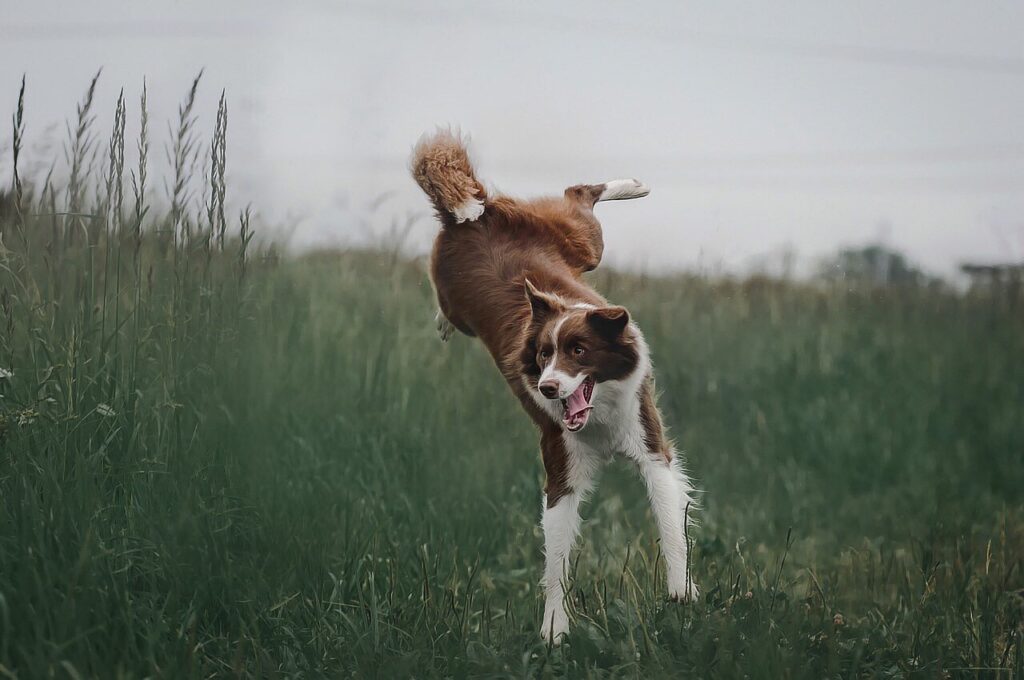Can Dogs Eat Pork? – No, They can’t
When it comes to your pup’s diet, you might wonder if pork is a safe choice. The answer is no, it is generally not recommended that they partake in this particular protein. While pork is not toxic to dogs, it is high in fat, which can cause issues like pancreatitis. Additionally, undercooked or raw pork carries the risk of parasitic infections such as trichinosis. It’s best to avoid giving pork to your four-legged friend, especially in its raw or undercooked form.
Can Puppies Eat Pork?
For the little ones in the dog family, the answer remains a no. Puppies are even more sensitive than adult dogs to potentially problematic foods, and their digestive systems are not equipped to handle high-fat foods like pork. Moreover, their young immune systems are more susceptible to parasites and bacteria that might be present in pork, making it an unsuitable choice for their diet.
Things to consider when feeding pork to puppies?
If you are considering feeding pork to puppies, it’s crucial to think about their overall health and dietary needs. Puppies require a balanced diet to support their rapid growth and development. Introducing high-fat meats such as pork can disrupt this fragile balance and potentially lead to growth abnormalities and health issues.
Nutritional Benefits of Pork for Dogs – Why Dogs Should Avoid Pork
While pork in itself is a source of protein and vitamins, the potential risks often outweigh the benefits when it comes to canine health. Let’s explore some of the reasons.
High Fat Content
Pork’s high fat content can be hard for dogs to digest and may lead to obesity and pancreatitis, a serious health condition.
Risk of Parasites
Consumption of undercooked pork can expose dogs to parasites like Trichinella spiralis, which can cause trichinosis, a serious and potentially fatal illness.
Sodium Content
Processed pork products, such as bacon and ham, are high in sodium and preservatives that can be harmful to a dog’s health.
Potential for Allergic Reactions
Some dogs might develop an allergic reaction to pork, resulting in itchy skin and gastrointestinal upset.
Choking Hazards
Pork bones, particularly cooked ones, can splinter and become a choking hazard or cause internal damage to a dog’s digestive tract.
Potential Allergies: Can Dogs Be Allergic to Pork?
Yes, dogs can develop allergies to pork. While not as common as allergies to beef or chicken, some dogs may exhibit allergic reactions when they consume pork.
Symptoms of Pork Allergies in Dogs
- Itchy Skin : Look for your dog scratching more than usual or developing hot spots.
- Gastrointestinal Issues : Watch for symptoms like vomiting or diarrhea.
- Ear Infections : Frequent ear infections can also indicate a food allergy.
What to Do If Your Dog Shows Symptoms?
- Consult a Veterinarian: Schedule an appointment to discuss potential food allergies and next steps.
- Dietary Elimination: Your vet might suggest an elimination diet to identify the allergen.
- Medication: In some cases, medication may be necessary to relieve symptoms.
Recommended Amount: How Much Pork Can a Dog Consume?
Given the risks associated with feeding pork to dogs, it is best to avoid it altogether. There is no recommended amount that is considered safe or beneficial.
Things to Consider When Feeding Pork to Dogs
If you decide to feed your dog pork against advice, ensure it is well-cooked, free from seasoning and additives, and offered in very small quantities. However, this should be an exceptional circumstance rather than a regular part of their diet.
How to Feed Pork to Dogs: A Quick Guide
Despite the recommendations against pork, if you are determined to include it in your dog’s diet, it must be done with extreme caution. Here are a few recipes that minimize the risks when offering pork as a treat.
Simple Cooked Pork Treat
Opt for lean cuts, cook thoroughly without any seasonings, and cut into small, bite-sized pieces to prevent choking.
Pork and Veggie Mash
Mix a small amount of cooked, unseasoned pork with dog-friendly vegetables like carrots and peas for a fiber-rich meal addition.
Pork Broth Delight
You can make a pork broth by boiling unseasoned pork bones, ensuring all the bones are removed before offering it to your dog.
Conclusion
While pork can be appealing, the health risks it poses for dogs can’t be ignored. From high fat content to the potential for parasites and allergies, it’s clear why pork should not be a go-to food for your furry friend. Always prioritize the well-being of your pet and consult a veterinarian when in doubt about dietary changes.



